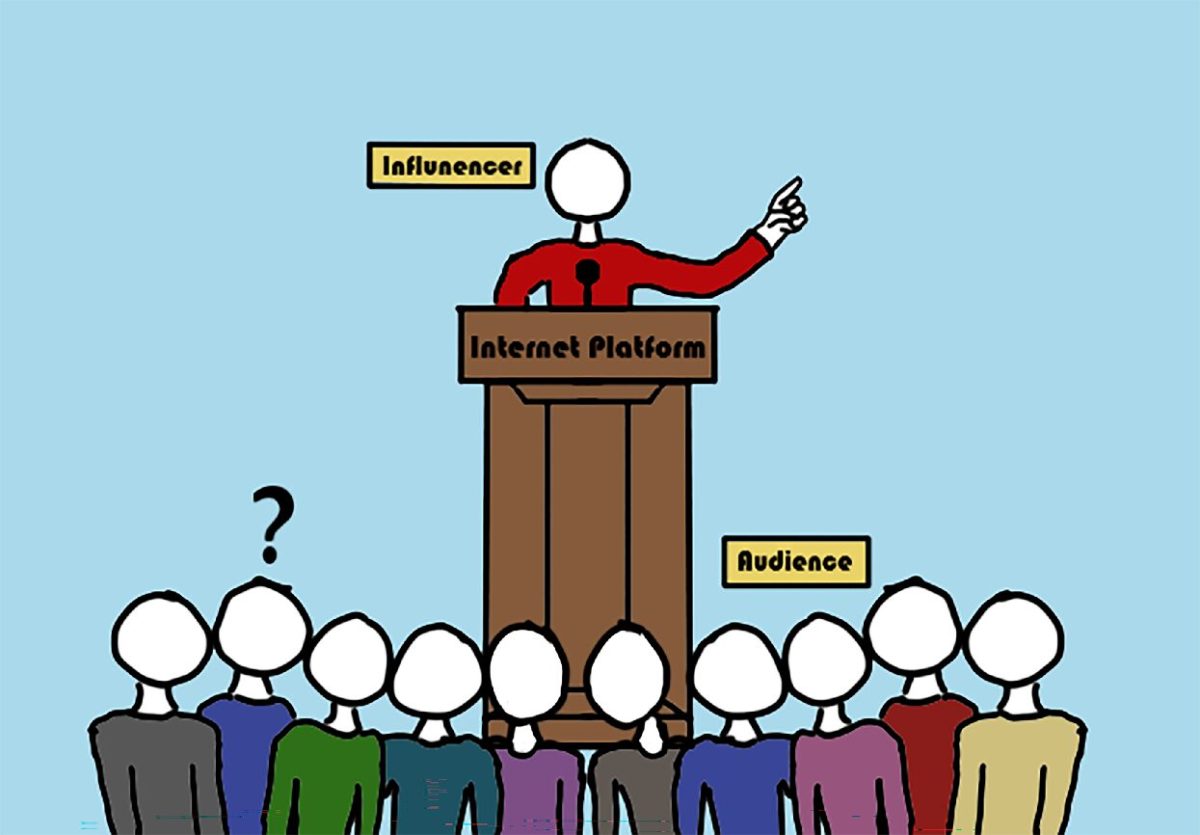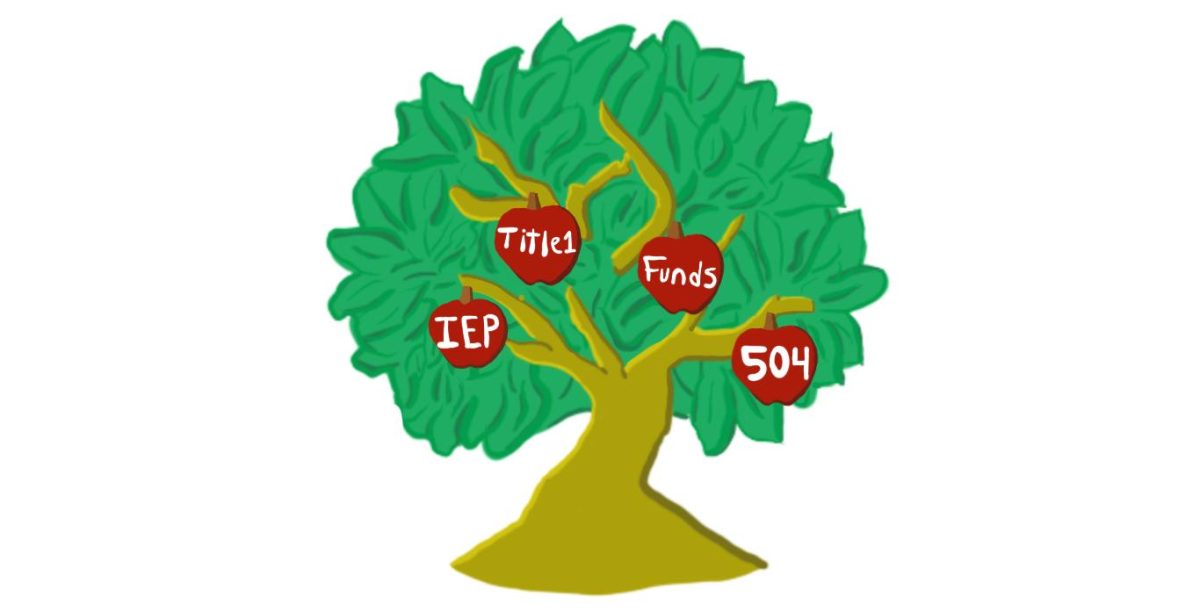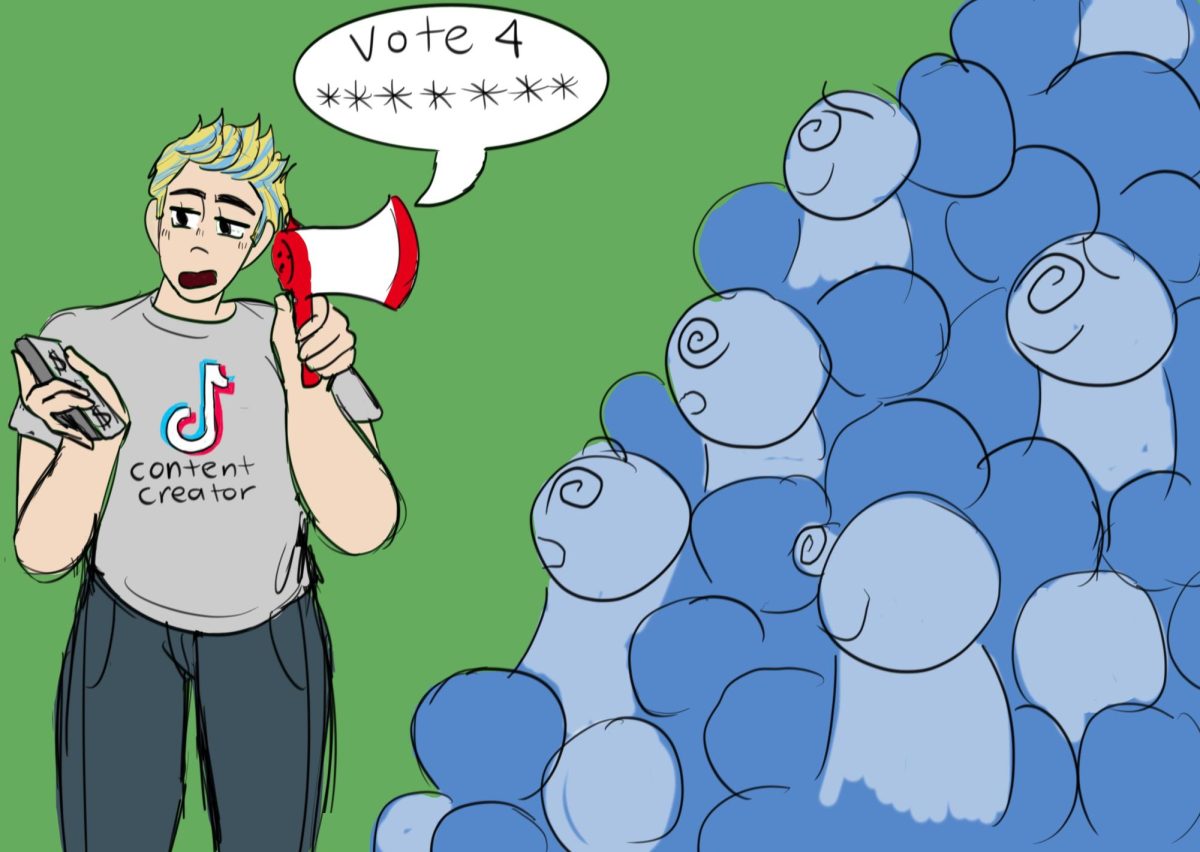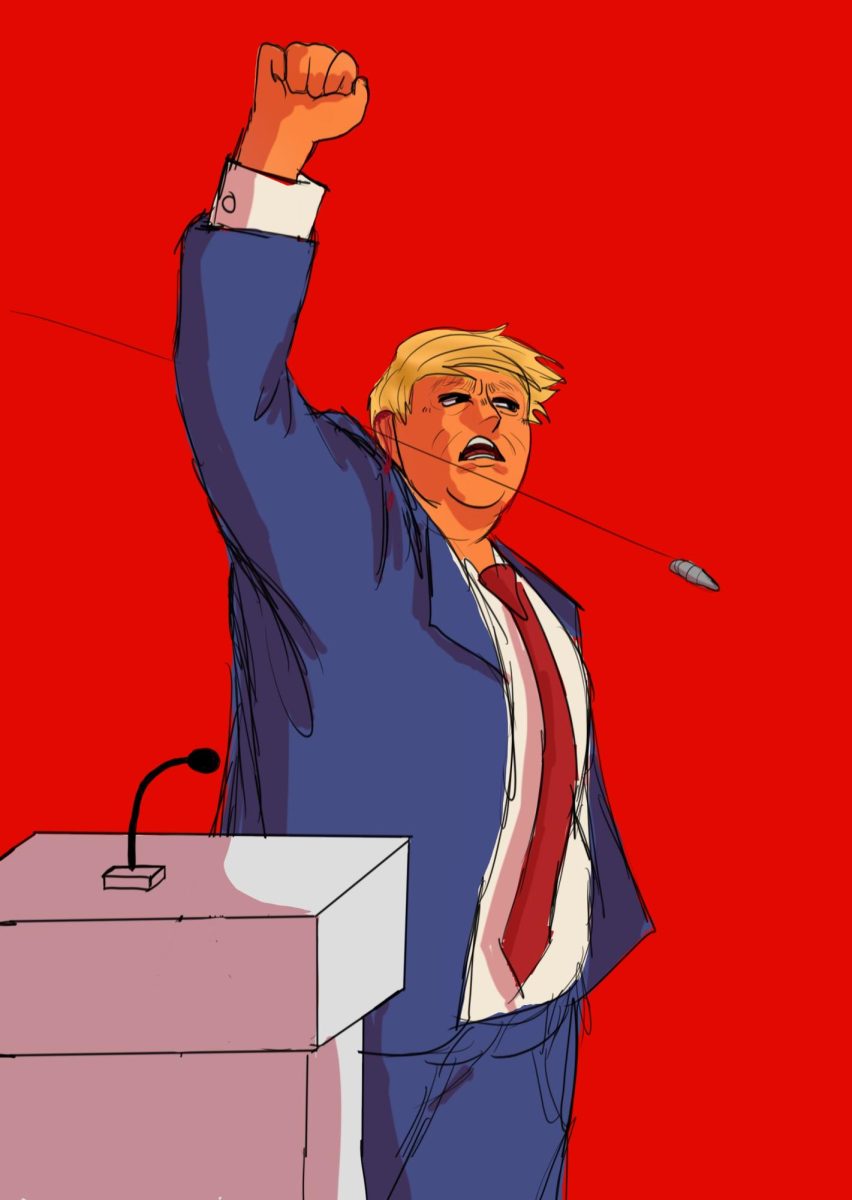Yes.
It is important to understand the impact social media has on society today. Over 4.9 billion people or 60.49 percent of the world’s population use social media, showing that social media is a global network that connects people from all over. Social media characterizes itself as a versatile platform for various genres and entertainment like food, art, exchangement of ideas and finally, political awareness.
Within social media, influencers express their own ideas on their platforms and should be able to share recent political events that occur and affect a community. According to the University of South Florida, the purpose of social media is to “engage” and “communicate” with audiences. Thus, influencers have the right and need to spark a conversation over political events that shed light on topics concerning human lives and rights.
When people become educated about current topics in the world, they have the decision to form their own thoughts based on the information they receive from influencers. Ph.D. Carsten Shwemmer, a senior researcher at GESIS Leibniz Institute for Social Sciences states, “after the murder of George Floyd in the United States [US], many influencers who were originally not posting political content took a position with the hashtag #BLM (‘Black Lives Matter’)” and for a few days Instagram became a sign of solidarity for People of Color all around the world.
This demonstrates how people who become passionate about a certain topic can and will be able to express themselves effectively on a social media platform. Through this, an interest in a topic will increase and amplify its recognition as a social issue. If influencers put out accurate knowledge on topics that represent human experiences, people can unite together to fight or join what a certain political topic expresses.
Other influences inform their communities with political topics like wars, movements and even governments, thereby creating a platform that allows positive discussions which increases awareness.
Although social media may generate controversy and conflict, people learn about difficult topics that are occurring and have the ability to discuss them with people who agree or disagree through influencer platforms. Being able to hear other people’s perspectives also creates a space to consider what they’re saying to be true or at least respect their opinions.
Social media in general, has become a trend in the younger generations including Generation Z (Gen Z). When influencers are able to positively influence younger generations, it can have a profound impact on the entire society. Kiran Voleti, a Political Strategy Consultant, states “in 2020, many social media influencers pushed to encourage young people to get out and vote in the US Presidential election. This message was amplified across various channels, resulting in increased voter turnout among 18-29-year-olds compared to previous elections.”
By being able to spread it on a social media platform, influencers were able to second handly increase the number of young voters. By doing this, each influenced person’s vote demonstrated how a society’s social order could be affected by influencers political platforms. Encouraging the community to vote was not harmful or beneficial, in fact, more people’s vote accurately represented the community’s belief and thought.
When accurately spreading a message, influencers need to keep in account the power they hold when they post or share content that can affect communities. Hence, reaching large audiences with a certain message can create a pathway to change. With the change, comes discussions that can create ripple effects across other social networks.
In fact, not only does an open platform influence a society but it also affects the social influencers. According to “How Social Media Affects Political Beliefs and Movements,” a Northern Illinois University Research paper, by Alyssa Anderson, 64 percent of people feel like they have a voice due to creating media and content, 61 percent feel more represented due to creating media and content and 64 percent of people feel more informed about politics as a result of creating media and content about politics or social issues—through the ages 18-29.
Giving people a voice to express their thoughts and emotions gives a voice to part of the community as a whole. Influencers need a social media platform to spread important messages and information related to everyday topics in politics. Without a voice to express concerns and reasons, society today would be much less educated about social and political events. As influencers contribute more awareness to political subjects, more discussions can happen within communities to understand political situations.
No.
Seeing political tensions covered on the news by journalists is an efficient way to be informed on a topic that is currently happening in real-world time about those issues. On the other hand, encouraging social media influencers to speak up or cover important topics on their platform should be accepted. Having them publicize their thoughts with evidence they gathered could potentially lead to countless users of social media becoming influenced by misinformation.
Despite the rights influencers have to express or promote their viewpoints on their social media platforms, they should not have a say in whether or not they agree or disagree with current political tensions that are not relevant to them. Countless individuals could come to a consensus that political issues are critical and timely topics that should be covered with accurate information. However, in some of these situations, there can be people—such as influencers—who are misinformed, taking sides in political situations.
According to the article, “These are the most and least biased news outlets in the US, according to Americans”, authors Pat Ralph and Eliza Relman refer to a survey of 1,440 members from the Knight Foundation and Gallup—an organization that supports democracy—Ralph and Relman mention that “they believe that 44% of news reporting and 64% of news on social media is inaccurate.” Around 36% to 56% of people believe both news reporting and news on social media to be accurate sources; these individuals could share their beliefs simply from the unreliable news sources they were told. They could spread those beliefs to their audience and potentially influence them to take a side despite not understanding the full context of the issue.
Seeing these influencers on platforms like Instagram and TikTok, and talking about a subject they are not relevant to should not be accepted by those who want valuable and credible news information on topics that cover controversial topics. Furthermore, these influencers have little to no experience with discussing these issues in an unbiased manner that also does not provide false information. An article published by Kinginfluencers, written by Yoeri Callebaut, discusses how influencers should simply stick to what they are known for, that being documenting their daily life through vlogs, and not speaking up on something they do not specialize in. “Influencers are not obligated to talk about political issues, just as politicians are not obligated to ‘run a lifestyle blog or write travel blogs,’” Callebaut said. Callebaut feels as though influencers freely do a duty that isn’t theirs, and that influencers should simply stick to their normal job, that being a social media icon that does influencer stuff such as blogging.
Having influencers—who are not credible—inform their viewers with falsely proven knowledge can be very harmful to the viewers. They may lean more towards the information they give them and not trust sources that are unbiased.
Moreover, Kingfluencers further mentions that with the distrust in journalists and the increasing trust for influencers who have no background professionalism in the field, the reliability of news regarding political issues is decreasing at an alarming rate. Meaning, that in the future, it might be very difficult to find a reliable news source that does not have any sort of bias.
With trust in news reports from social media influencers on the rise, the trust in professionals like journalists has been on a decline, detrimentally harming the journalists whose purpose is to inform their community with reliable information. According to the article “Trust in online news shifting from reporters to influencers,” published by the Search Engine Journal—An organization that brings timely and relevant information— “There’s a decrease in the number of people who prefer to start their news journey with a website or app, down ten percentage points since 2018…” They go on to say that people are now turning to celebrities and social media influencers because of the deprecating sense of trust the audience has for news reporters. With the number of people turning to social media influencers for news coverage, the reliability of news for political tension has been decreasing since 2018. The numbers show that countless people are shifting towards social media for news coverage at a questionable rate. For instance, the usage of TikTok for news coverage has risen to 6% since it was created and founded in 2020.
The depreciation in reliability and respect for journalists harms their work and only leads to more individuals leaning toward social media influencers for information regarding political tensions. Due to these social media apps shifting from entertainment to providing some false information, the usage of social media has taken a twist in the wrong way; causing journalists and influencers to have the same job as influencers. Influencers getting more trust rather than professionals who are experts in the field of reporting accurate and unbiased information regarding some news on political tensions is very harmful to the people who are vulnerable to acquiring inaccurate information.









